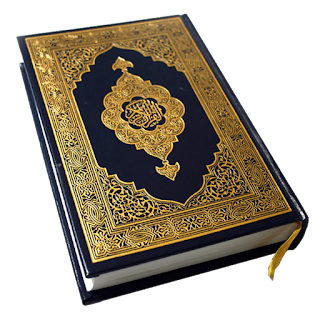The Quran, also known as the Quran-e-Pak, is the holy book of Islam. It is considered the word of God, revealed to the Prophet Muhammad through the angel Gabriel over a period of approximately 23 years. The Quran is written in Arabic and is revered by Muslims worldwide as a source of guidance, wisdom, and spiritual enlightenment. Here are 1000 words about the Quran-e-Pak and its significance in the Islamic faith:
The Quran-e-Pak is divided into 114 chapters, known as Surahs, which vary in length. The Surahs are further divided into verses, known as Ayahs, which serve as the building blocks of the Quran's text.
The Quran was revealed to the Prophet Muhammad during the 7th century CE in the Arabian Peninsula, where he lived. It is believed to be the final and most complete revelation from God, following earlier scriptures, such as the Torah and the Bible.
The Quran's primary objective is to guide humanity in matters of faith, morality, and practical life. It covers a wide range of topics, including theology, ethics, social justice, family, economics, and governance.
Muslims consider the Quran to be a miraculous text, both in its content and linguistic excellence. Its eloquence and literary beauty are regarded as evidence of its divine origin.
The Quran emphasizes the concept of Tawhid, the belief in the oneness of God. It asserts that God is the creator of the universe and that He alone deserves worship and obedience.
The Quran also provides detailed guidance on personal conduct and relationships. It encourages believers to uphold values such as honesty, compassion, humility, justice, and forgiveness.
Muslims believe that the Quran is a source of spiritual nourishment and a means of attaining closeness to God. Recitation and reflection upon its verses are considered acts of worship.
The Quran encourages Muslims to ponder over its verses and seek deeper understanding. It challenges believers to use their intellect and engage in critical thinking while studying its teachings.
The Quran-e-Pak provides a comprehensive code of law, known as Sharia, which governs various aspects of individual and communal life. It offers principles for personal ethics, social interactions, and legal matters.
Muslims regard the Quran as a timeless and universal scripture, applicable to all cultures and societies. Its teachings are considered relevant and adaptable to different contexts and circumstances.
The Quran promotes the principle of justice and equality. It emphasizes the rights and responsibilities of individuals, while also highlighting the importance of social justice, charity, and the welfare of the less fortunate.
The Quran-e-Pak includes stories of prophets and messengers from earlier generations, such as Adam, Noah, Abraham, Moses, and Jesus, among others. These narratives serve as examples of faith, perseverance, and righteousness.
Muslims believe that the Quran's original Arabic text remains unchanged since its revelation. Translations of the Quran exist in various languages, but they are considered interpretations rather than the exact word of God.
The Quran's memorization holds great importance in Muslim communities. Many Muslims, known as Hafiz, commit the entire text of the Quran to memory, preserving its words and teachings.
Recitation of the Quran is an integral part of Muslim prayer and worship. Muslims strive to recite and understand its verses in their daily lives, seeking guidance and seeking closeness to God.
The Quran-e-Pak is recited with proper intonation, rhythm, and melody, known as Tajweed. Tajweed rules ensure the correct pronunciation and beauty of the recitation.
Muslims recite the Quran in their daily prayers, known as Salah. A portion of the Quran is recited in each unit of






.jpg)
.jpg)

No comments:
Post a Comment